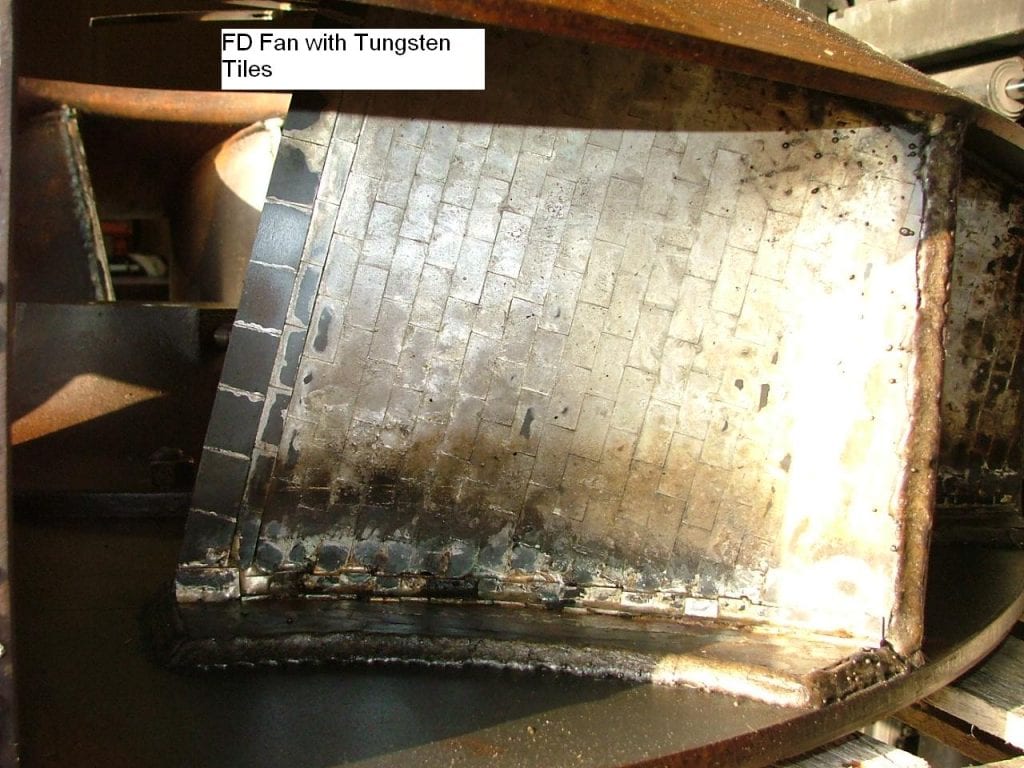Tungsten Carbide Tile
WEAR PROOFING
Superior surface protection against wear. Brazed parts can withstand extreme heat up to 800 °F. Braze tensile strength can meet or exceed the strength of the parent metal. Cuts repair cost and downtime substantially, while adding a longer life to present equipment. Withstands impact and abrasion, maintenance cost is virtually eliminated. Corrosion resistant. Pays for itself in reduced labor / change-out time.
BRAZED TUNGSTEN CARBIDE FEATURES
In most cases, it is either too expensive or technically impossible to make a large part from solid tungsten carbide, so most parts are composites of carbide tiles attached to a steel base. Additionally, as an unweldable material that resists most conventional attachment methods, carbide is difficult to work with. The best way to attach carbide is by silver solder brazing. Using primarily induction brazing, we form a strong structural bond which supports the carbide and keeps it securely in place in the appropriate wear areas. After carbide is properly installed, it can be expected to outlast steel by as much as 50 to 1. There are no additional “build-up” treatments or procedures required. Special carbide grades can be applied where higher impact resistance, wear resistance or more corrosion resistance is required. Various Tungsten carbide grades are produced to protect against a spectrum of wear problems, ranging from “soft” Impact grade to “hard” wear resistant grades. Generally carbide harness trades off against impact resistance. The objective in a carbide application is to use the hardest grade that will not break. The softest impact grade carbide grade has approximately the same hardness as the hardest tool steels. Since “softness” is related to abrasion resistance. Impact grade carbide starts where steel’s abrasion resistance stops. “Hardness” is a good indication of abrasion resistance, it can also be used for an application guideline. Tungsten carbide ranges in hardness from a “soft” 68 Rockwell C scale for impact grades to 93 Rockwell A scale for the hardest wear resistant grades.
TUFFCARB OPTION
-
- This process introduces solid tungsten carbide shapes into a hard-facing weld matrix. The resulting product has wear characteristics of solid tungsten carbide with increased shock resistance. TuffCarb works well in heavy impact situations, buckets, loaders, etc.
TIGERCARB OPTION
-
- This proprietary process which injects carbide powders into a plasma stream. This product has many of the wear characteristics of solid tungsten carbide, plus the ability to conform to corners and curved shapes and corrosion resistance. TigerCarb also works well in heavy impact and with rough particulate abrasion.


